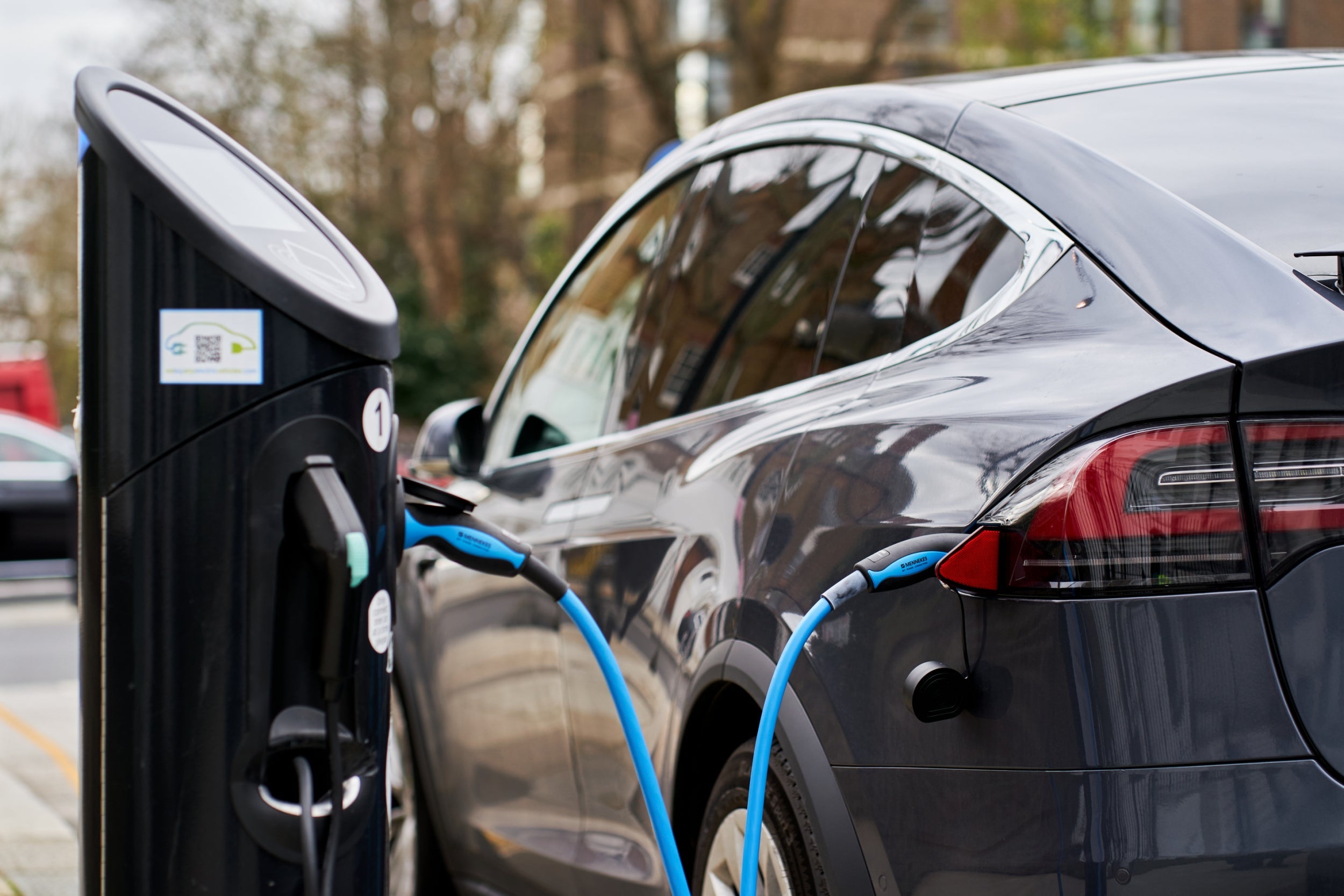Shell plans 50,000 EV charging points – but beware oil majors bearing gifts
The initiative could help the government’s deal overcome a major challenge facing its electronic vehicle plans. But, argues James Moore, there are clear downsides


A game changer? Shell’s announcement of plans to instal 50,000 electric vehicle chargers in just four years sure looks that way.
At the end of last year, the government brought forward plans to ban the sale of new petrol cars by 2035 to 2030, a few months prior to the oil giant’s acquisition, for an undisclosed price, of charging specialist Ubricity, through which its plan will be implemented.
The House of Commons Public Accounts Committee, as it is wont to do, got to the nub of the problem with Boris Johnson’s announcement: his administration has “a mountain to climb” if it is to achieve that goal. It faces multiple hurdles.
One of the steeper ones is that while there are around 25,000 EV charging points right now, Britain will need roughly 10 times that number, and maybe more, to cope with the expected demand.
Those with driveways can have their own installed but about a third of UK households don’t have those. In urban areas the proportion rises to 62 per cent. It affects 68 per cent of people in social housing.
The government has tried to address this via its On-Street Residential Charging Scheme (ORCS) which will fund 75 per cent of the cost of installing on-street charging points.
The trouble is it requires someone else, namely local authorities, to put up the remainder of the cash. Take up has been low because cash is something local authorities are critically short of – and they’re looking at a forthcoming spending round which will only exacerbate the problem.
Shell’s plan would appear to address the issue because the company says it is “prepared to cover the remaining costs” subject, of course, to “commercial terms”. The devil inevitably comes in details like that.
Let’s say Greenford City Council signs a commercial agreement with Shell to fill its streets with Ubricity charging points. Shell is then sitting pretty with pricing power courtesy of its local monopoly. Ker-ching.
This could be resolved if one of its competitors, say BP, which has its own version of Ubricity, comes up with a similar scheme. Unless, that is, Shell’s commercial terms call for exclusivity.
This is something the Competition & Markets Authority, which has already voiced concerns about the issue, is going to have to watch like a hawk.
This issue, and others that may emerge, aren’t insurmountable if regulators keep their eyes on the ball and, despite the scepticism I’ve expressed, this initiative could still play an important role in dealing with one of the multiple challenges the government faces (the lack of attention it is paying to those should be of deep concern to all of us).
But there is another point to make about all this.
Shell has become very fond of trumpeting its green credentials and its plans for a “net zero” future.
In addition to the commercial opportunity this scheme presents, it may also benefit the oil giant through feeding into that narrative at a time when it’s been facing some unusually tough pressure from not only activists but also investors.
You may recall that the company suffered a court defeat in the Netherlands at the end of May, when it was ordered to slash its carbon emissions.
At its most recent AGM its in-house climate resolution, a first, won 89 per cent of shareholders’ votes, in line with management guidance. But a rival, much tougher Paris Accords-based resolution submitted by activist Follow This, which has been enlisting green shareholders in a campaign to clean up big oil, won 30 per cent support (some investors clearly backed both). To put that in context, just three per cent of investors backed a similar motion in 2016.
Shell is, in other words, feeling some of the heat its activities have been creating.
Attempts at greenwashing aren’t cutting it like they used to.
It would be no surprise to see this initiative playing a key role in the company’s attempts to counter the criticism it has been facing. I’m thinking along the lines of something like “we’re trying really hard to be more green, just look at the 50,000 charging points we’re installing for electric cars in Britain!”.
Sorry, but no. No, no, no. That won’t do at all. Shell shouldn’t be allowed off the hook until such time as it has aligned with the Accords in line with the Follow This motion.
PS The same holds true for any of the other oil majors looking to score a PR victory through getting involved in the business of EV charging points.
Join our commenting forum
Join thought-provoking conversations, follow other Independent readers and see their replies
Comments
Bookmark popover
Removed from bookmarks